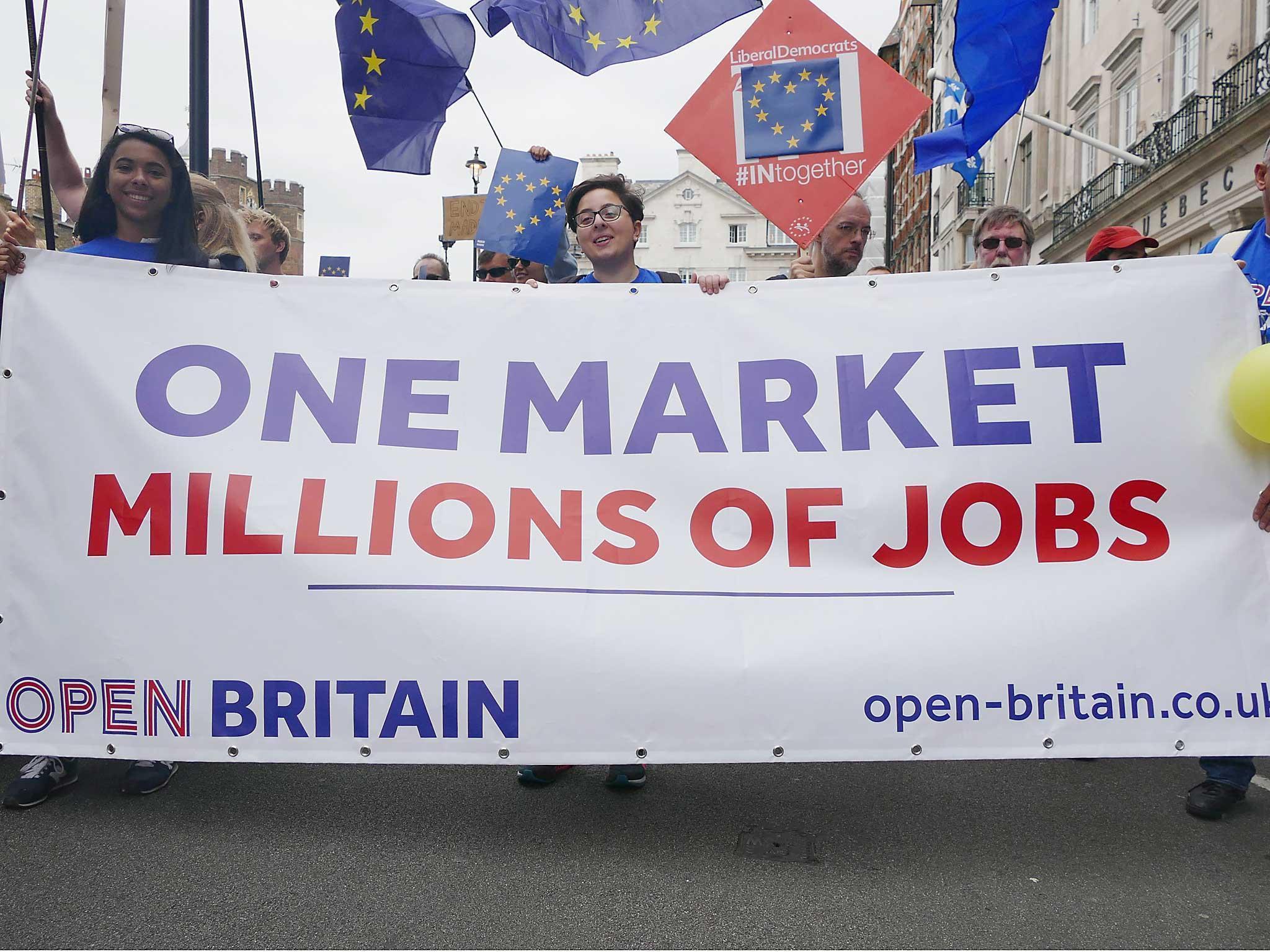Don't worry Remainers, Britain will rejoin the European Union within 30 years
Britain wants to leave the EU at the very point that nation unions are being set up everywhere else, from South America to Africa and Asia

Your support helps us to tell the story
From reproductive rights to climate change to Big Tech, The Independent is on the ground when the story is developing. Whether it's investigating the financials of Elon Musk's pro-Trump PAC or producing our latest documentary, 'The A Word', which shines a light on the American women fighting for reproductive rights, we know how important it is to parse out the facts from the messaging.
At such a critical moment in US history, we need reporters on the ground. Your donation allows us to keep sending journalists to speak to both sides of the story.
The Independent is trusted by Americans across the entire political spectrum. And unlike many other quality news outlets, we choose not to lock Americans out of our reporting and analysis with paywalls. We believe quality journalism should be available to everyone, paid for by those who can afford it.
Your support makes all the difference.Theresa May is sounding fierce: over her dead body will you can stop Article 50 from being triggered in 2017. Britain is leaving the European Union; that much we know.
Meanwhile the EU is facing its own crisis. Despite its vast infrastructure, the left is also turning its back on the union. It accuses the bloc of fiscal and social dumping, speculation, tax fraud, high unemployment, an environmentally destructive economic model and wealth inequality.
But unpicking this this tightly knit EU fabric would take several decades. The EU needs reforming and it will change, but it won’t disappear. It’s a collective organisation that has helped weak countries – and they all are weak, in one way or other – focus on their potential to improve. Spain benefited from a unified Europe after nearly 40 years under obscurantist Franco; Portugal did well in the EU group and so do Ireland and Italy.
No institution can survive and thrive without restructuring. The EU will undergo that too, but it’s here to stay.
In the aftermath of the 23 June vote, commentators in Britain speculated on what countries would quit the EU after Britain. Italy was mentioned and the catchword “Quitaly” readily coined. The reality is that none will have the bottle to follow the UK out. Eurozone countries can’t afford to; eastern European countries are still cautiously preparing for the common currency.
The EU will muddle through, learn from the mistakes made that led to the loss of the UK as a partner member, change political orientation – its leaders are mostly right-wingers at the moment, but they won’t stay that way forever – and no doubt go through a few more other man-made crises too. Just like any European country or member state.
But the UK is the only nation truly floundering on the question of Europe. It’s already tried out almost every relationship with its group of neighbours: it remained outside the European Community until 1973, then it joined but wanted special dispensation from Schengen; later, a full member of the EU, it firmly refused the euro. Britain always tried to shape a special path for herself. Now she wants to leave at the very point that nation unions are being set up everywhere else, from South America to Africa and Asia.
Those groups are being established because, on balance, they work. That’s what UK has forgotten – and that’s what will drive it back into the arms of the EU again. It’s not a question of it, only when.
Having experimented with nearly all possibilities to the contrary – and perhaps more, during the Article 50 negotiations – the British will want to try one last option and have a proper go at it EU membership. In my view, Britain will rejoin the EU – either by not actually quitting in the first place, having figured out how to put the referendum outcome in the loft, or, more likely, much later in the future, after three decades of having stubbornly kept out until it couldn't cope anymore.
It may yet even end up leading the EU in future. Britain is historically used to be in charge, not being told what to do – the source of so many of the concerns of the Leave voters. Many things can change in 30 years. The EU could even have a different name.
Socially divided, with unparalleled inequalities weakened workers' rights in spite of tax haven status, England will be no Switzerland in 30 years’ time. It will need the support of the group to thrive again, just as the EU helped rescue its fortunes in the aftermath of the Second World War.
The whole of Britain outside the EU ad infinitum? Sorry Brexiteers, that’s just not likely.
Join our commenting forum
Join thought-provoking conversations, follow other Independent readers and see their replies
Comments